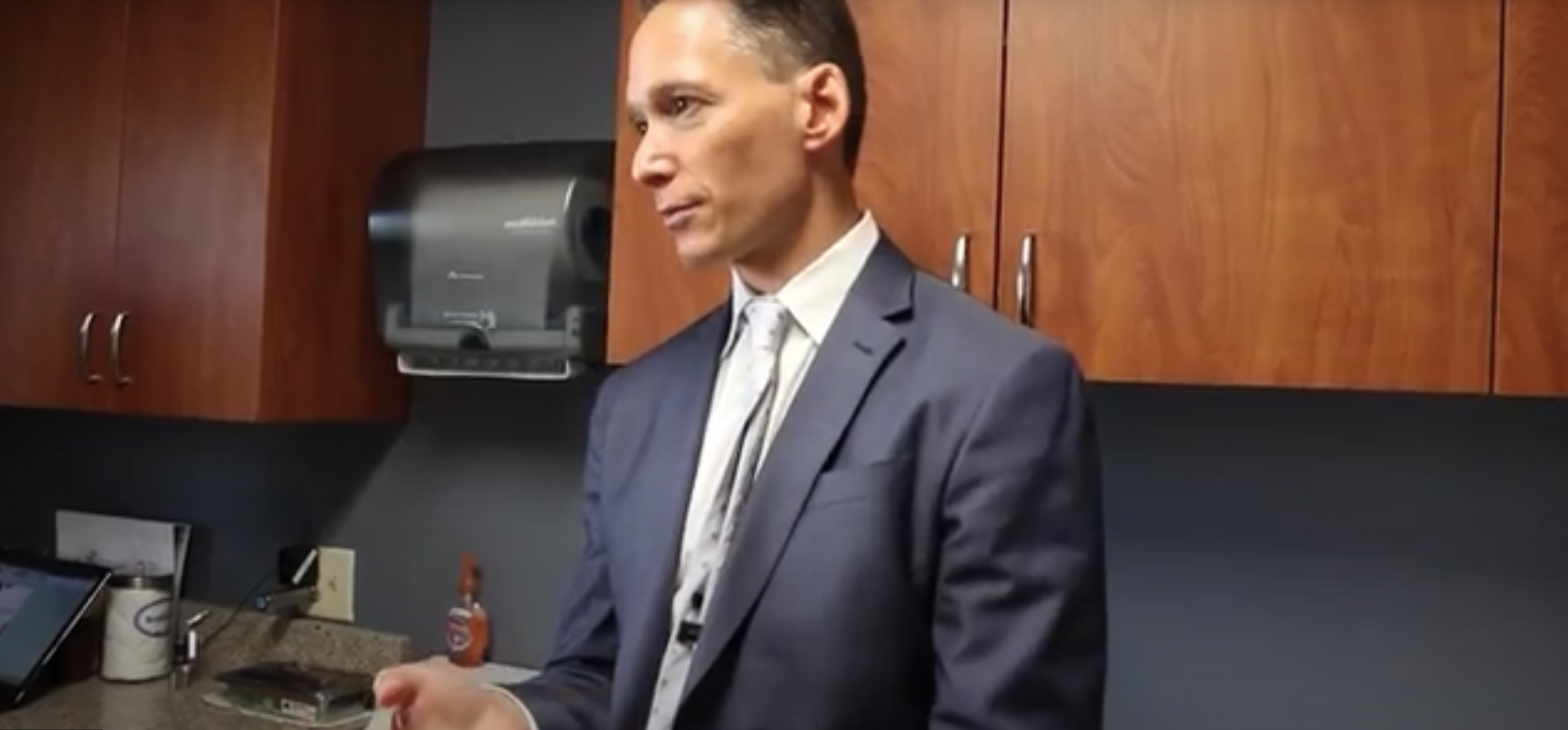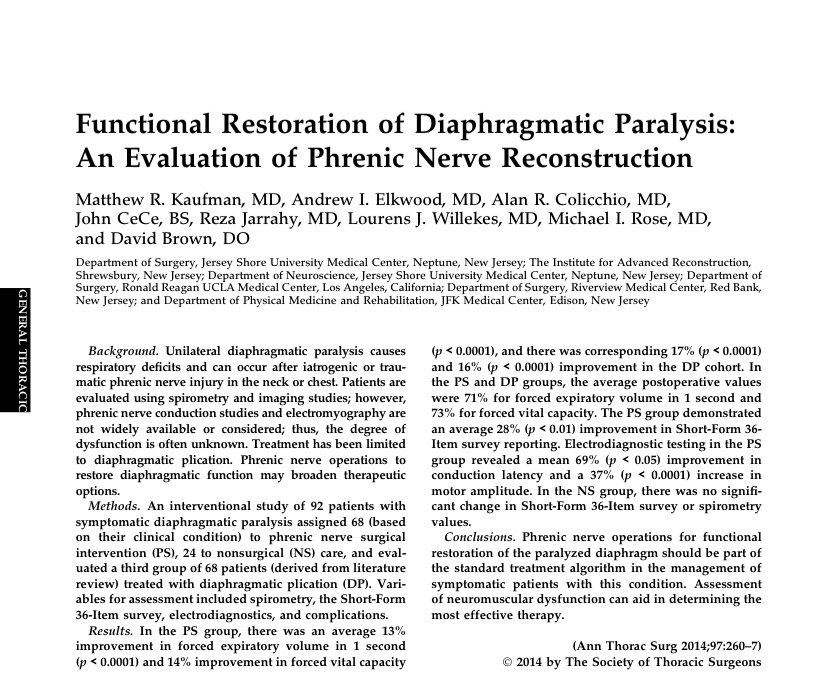Summarize This Article:
Summarize This Article:

Most patients with diaphragm paralysis are told by their physicians that they must learn to live with the injury, but recent surgical breakthroughs have made it possible for some cases of diaphragm paralysis to be reversed.
New treatment options for reversing diaphragm paralysis include phrenic nerve reconstruction and diaphragm muscle replacement surgery. These innovative surgeries are currently being offered at UCLA and The Institute for Advanced Reconstruction in New Jersey. Hundreds of patients who have undergone these procedures have reversed their diaphragm paralysis or gained significant improvement in their breathing.
.jpg?width=250&height=333&name=doctor-talking-to-patient%20(1).jpg) This surgery aims to release compression around the phrenic nerve, typically caused by scar tissue built up around it. After assessing the phrenic nerve damage, surgeons will release the phrenic nerve from whatever was pinching it. If they find the nerve is too damaged to heal, they will take a nerve graft, typically from the lower leg, to reconstruct the phrenic nerve and restore function to the diaphragm. The operation takes about three hours.
This surgery aims to release compression around the phrenic nerve, typically caused by scar tissue built up around it. After assessing the phrenic nerve damage, surgeons will release the phrenic nerve from whatever was pinching it. If they find the nerve is too damaged to heal, they will take a nerve graft, typically from the lower leg, to reconstruct the phrenic nerve and restore function to the diaphragm. The operation takes about three hours.
Two years after phrenic nerve surgery, patients demonstrated an average 125% increase in diaphragm muscle strength. Patients also reported a meaningful increase in activity and an overall improvement in their daily lives.
If the diaphragm is irreversibly damaged, or if the patient has previously had a diaphragm plication, diaphragm muscle replacement surgery could be an option. During this procedure, the nerve surgeon will remove healthy muscle from another part of the body and transfer it to the chest cavity. The worn diaphragm muscle is completely replaced with healthy muscle.
All surgeries come with inherent risks, such as reactions to anesthesia and excessive bleeding, however, these types of negative outcomes are rare. The benefits of reversing diaphragm paralysis far outweigh the risks, as it can lead to a better quality of life with less shortness of breath and chronic fatigue.
Each patient’s surgery and recovery are different. More than 80% of patients have a successful surgery that fully or partially restores function to their diaphragm within a year or two. Sometimes, patients’ paralysis is reversed following surgery, and they feel relief immediately.
In other instances, complete recovery can take up to two to three years, and some patients may never fully reverse their diaphragm paralysis. However, even a moderate improvement in diaphragm function can lead to a better quality of life.
Recovery may be impacted by the patient’s age and level of commitment to breathing exercises. Those who are older than 60 may have slower recovery or more modest improvements than younger patients. Exercising the diaphragm muscle post-surgery is also critical because surgery typically only treats the nerve. The diaphragm, rib, and neck muscles must be strengthened with exercise, which can be achieved through diaphragmatic breathing, a pulmonary rehabilitation program, or specialized physical therapy. This post-operative rehabilitation is a significant factor in overall recovery and breathing improvement.
Although results are different for each patient, reversing diaphragm paralysis can provide several positive outcomes, including:
There is a chance the phrenic nerve may repair itself, but it’s generally more likely that it will only become more compressed. If the nerve is compressed for a long time, it could endure irreversible damage and be more complicated to repair. The sooner the damaged nerve is treated, the greater chances are for a positive surgical outcome.
To be considered for phrenic nerve surgery at The Institute for Advanced Reconstruction, you must already have a diagnosed paralyzed diaphragm. You will then go through a series of tests to learn more about your condition and determine the best route of treatment. Each case requires a lot of time, careful planning, and extensive pre-surgery preparation since diaphragm paralysis is different for each patient. This is to create an individualized care plan that provides the best possible outcome.
Learn more about the latest treatments for diaphragm paralysis at The Institute for Advanced Reconstruction and schedule a consultation today.


.jpg)




